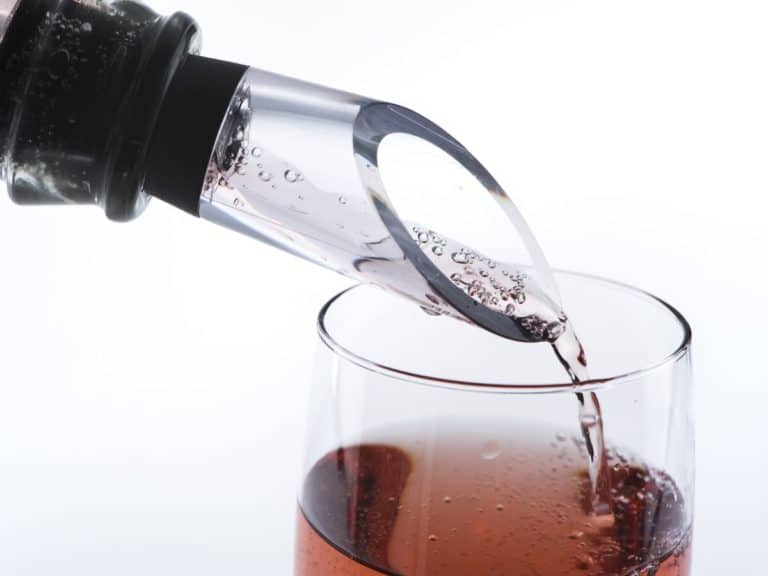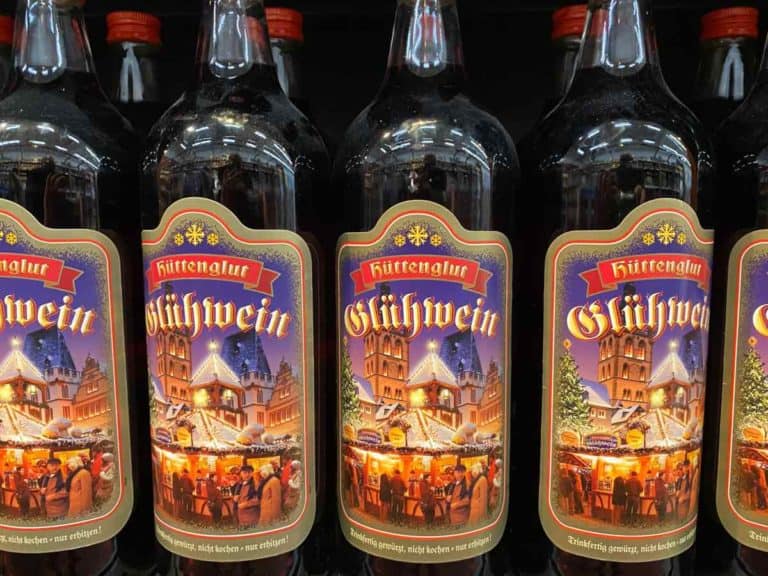Is Chianti A Good Wine?
There is no denying Chianti’s increasing popularity as THE red wine from Italy. This Sangiovese grape-dominant wine is the perfect pairing for traditional Tuscan food (after all, what grows together, goes together).
But what if Chianti was just as good for your health as it is with your food?
Red wines have been linked with health benefits since ancient Egypt when they were used for medicinal purposes. So, does a dry red like Chianti hold the same health value as its ancient counterpart?
Read on to learn if Chinati is a good wine for your well-being and it is delicious.

Is Chianti A Healthy Red Wine?
The million-dollar question is if Chianti is a healthy red wine. After all, what could be better than enjoying the decadent fruity, spicy, earth and tart flavors of Chianti while aiding your health at the same time?
The good news for Chianti lovers is that it is believed to have various beauty and health benefits. When enjoyed in moderation, Chianti is an excellent red wine, with several studies supporting its use for better skin, hair, and heart health.
Thus, like many similar dry reds, Chianti is a relatively healthy wine. However, keep in mind that none of these studies conclusively term Chianti or other red wines as anti-aging or life-prolonging drinks.
There is still a lot of debate on whether red wine can help prevent heart disease. However, certain compounds in red wine may aid better health.
Antioxidants and polyphenols like resveratrol may prevent heart diseases, lower diabetes risk, and aid digestion. The antioxidants come from the grape skin. Since dry red wine completes the process of fermentation with grape skin, it has more antioxidants.
However, we would not recommend drinking Chianti solely for health benefits. The key is to incorporate the red wine in moderation with other lifestyle changes to encourage sound living.
As men reach the age of 65+, they should limit themself to one drink a day (women of all ages should follow this), as per the National Institute of Alcohol Abuse and Alcoholism recommendation.
Related Article: How Long Does Chianti Last After Opening?
Five Reasons Why Chianti Is Good For Your Health
When enjoyed in moderate quantities, Chianti can be a beneficial drink thanks to the presence of resveratrol. Resveratrol has garnered a lot of attention for its potential health benefits.
While much research is still needed to determine the finality of just how better red wines like Chianti are than beer or liquor, there has been an indication of lower heart diseases in regular red wine drinkers.
Why is Chianti an excellent red wine for improved health? We discuss the five reasons below.
1. Rich in Antioxidants
The most significant indicator of the potential health benefits of red wine is the presence of antioxidants. As we discussed already, grape skin, in this case from Sangiovese grapes that are primarily used in the making of Chianti, is full of antioxidants.
When Chianti wine is made, the grape skin remains a crucial part of the fermentation process. Thus, Chianti and other red wines are more antioxidant-rich than white wines.
But what’s the hype about antioxidants anyway?
Antioxidants prevent cell damage, promoting good health. They do so by hunting down free radicals and slowing down the oxidation process (as their name suggests), which curbs the chain reactions that harm cells.
Free radical removal by antioxidants and their role in stopping other oxidation processes has cemented their place as one of the most important compounds for good health.
From skin to hair to your heart, antioxidants (and compounds like them) are potentially helpful in protecting your body against damage.
2. Better Heart Health
Many studies highlight the potential link between red wine and heart health.
The prevention of coronary heart disease helps reduce the risk of heart attacks. While the studies are still in the preliminary stages but the presence of antioxidants may help prevent heart diseases by increasing good cholesterol (HDL).
Red wine antioxidants called polyphenols can protect the blood vessel lining. The polyphenol, resveratrol, is potentially anti-inflammatory and lowers blood clotting risk.
However, studies over these claims have not concluded anything with certainty.
3. Hair and Skincare Benefits
Apart from enjoying the complex flavor notes of Chianti wine, you might also be unknowingly helping your tresses grow. The possible cell-saving and anti-inflammatory properties of resveratrol help reduce hair loss. Chianti may also help improve blood circulation to the scalp, resulting in lesser dandruff and flakiness.
As for your skin, it is believed that the resveratrol and AHAs found in Chianti wine are beneficial. Resveratrol curbs bacteria growth, whereas AHAs help with inflammation.
Moreover, AHAs are also naturally antiseptic, so Chianti may also be acne-fighting. Some people even swear by using a small amount as a face mask to prevent breakouts. Antioxidants found in Chianti have long been used in skincare products to prevent sagging skin as they increase collagen production.
And if that wasn’t enough, Chianti is also thought to help protect against sun damage. Now we are not suggesting you replace all your skincare with a bottle of Chianti, but enjoying a glass now and then may add a youthful glow.
4. Protects Teeth and Gums
According to one study, polyphenols in Chianti can also promote teeth health. Red wine polyphenols can possibly prevent harmful bacteria from sticking to the teeth. The same bacteria are responsible for cavities, gum disease, and plaque.
However, the study results were deduced using an in vitro model rather than using animals or humans for testing. Therefore, further investigation would be necessary, but researchers were pleased with the in vitro results and are hopeful of a similar positive outcome upon more research.
5. Anti-Aging Properties
Since the time of pharaohs, red wine has been considered an elixir for longer life. Over the years, many studies have been conducted to find any weight to these claims.
While there is debate over the claims, the presence of resveratrol possibly results in life prolongation. Some even believe consuming moderate amounts of Chianti can help prevent cancer.
Some Italian pharmacies combine Chianti wine with other natural antibacterial and antiseptic ingredients to enhance the effect of resveratrol.
While there is still a long way to go as far as conclusive scientific evidence regarding the health benefits of Chianti is concerned, having recommended amounts of the wine can be potentially good for you.

Remember that red wine with a deeper color and high tanning has more polyphenols than its lighter counterparts. Chianti wines can have medium and high tannins based on their quality. Therefore, we would recommend the Chianti Classico Riserva to take full advantage of its possible hidden health benefits.
One more thing to know is that the amount of resveratrol present in one 5 oz glass of Chianti (and other red wines) may not be high enough to experience any significant benefits on its own. Thus, it should be incorporated into your lifestyle and not used primarily for its health advantages.
Is Chianti Full-Bodied?
Chianti is a light to medium-bodied wine with moderate to high tannins. This balance makes Chianti an easy pairing wine that does not overpower when used in cooking and still feels heavier on the tongue than other light-bodied wines.
Chianti is a wine with character and has enough amounts of tannins to be used for its antioxidant benefits that potentially include (but are not limited to) youthful skin, better gum health, improved gut health, and a stronger heart.
How Many Carbs And Calories Are There In Chianti Wine?
According to the Carb Manager, one 5 oz glass of Chianti wine without ice has 125 calories and 4g of total carbs. However, other sources state the net carbs at an even lower 2.6g per regular serving.
Dry red wines like Chianti are generally low carb and diet-friendly since they have little to no residual sugar thanks to a complete fermentation process. Thus, while a glass of Chianti may make your mouth pucker more in comparison to sweet wine, it is definitely more on the healthier side when consumed regularly.
Carbs in dry red do not mean the same as in other foods. In dry red wines like Chianti, we actually have carbohydrate equivalents. Carb equivalents are what remain after we eliminate fat and protein.
Thus, the carbs in wine may lower your blood sugar levels as they are calculated based on how you metabolize the beverage. However, if you have diabetes, you should consume wine carbs the same way you would with other foods since overconsumption can have a negative impact on health.
In a nutshell, dry reds like Chianti are low in carbs and relatively healthy when consumed in moderation.
So, Is Chianti Good for You?
Chianti is a dry red healthy wine with moderate to high tannins. Wines high in tannins are supposedly beneficial for health due to antioxidants and polyphenols like resveratrol that act as antioxidants.
The antioxidants in red wines like Chianti potentially prevent cell damage, promoting heart health and benefiting the skin, hair, and gut.
Although some studies have corroborated the health advantages of having Chianti in moderation, more research is needed to come to a definitive answer. Nonetheless, having red wine along with a balanced lifestyle may help you live a healthier life.
Read Next: Can You Cook With Chianti Wine?





